#my pro-yuji propaganda is working
Explore tagged Tumblr posts
Text
YAYAYAYAYYAYAYAYAYAYAYYYY im so geeked thank u
there is an EXTREME shortage of yuji fics 😣
#yujideficiency #sos
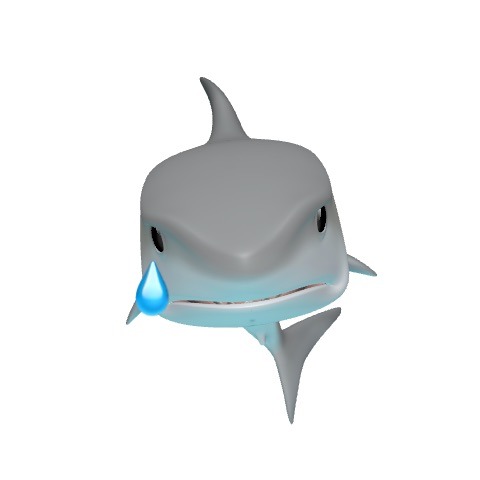
#sleep talking ᯓ★#the yuji fic campaign is spreading😈😈#my pro-yuji propaganda is working#join the movement#yuji x reader#yuji itadori#yuji itadori x reader#jujutsu kaisen#jjk yuji
183 notes
·
View notes
Note
Do you think that Batman could empathize with Tomura and successfully reach out? They are both orphans with a dark side. The difference being is that Bruce was able to work through his darkness to be healthy(er) while Tomura had all his pain cultivated for 15-16 years.

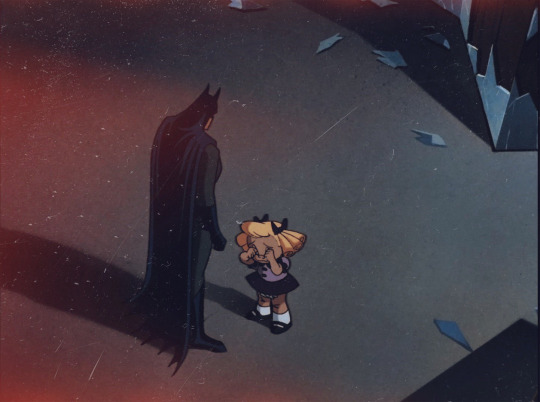
Yes. 100% yes. That’s not even a question for me. I’ve been dying for someone to send me a question like this, because it’s something I’ve noticed in the general fandom response to the pro-heroes and the hero kids. The thing is, the heroes in My Hero Academia don’t really act like good wholesome heroes. They certainly act like marvel movie heroes... in the fact that they have strong superheroes and fight a bad guy and have such a clear delineation between good and evil that many viewers take them to have propagandistic qualities. Like, there’s a reason that marvel movies have degraded to what they are today currently, and besides all the other factors it’s because these comic book heroes are really getting sanded down into a set of superpowers, a costume and a bad guy to beat with no ideals or themes behind their characters. My Hero Academia heroes aren’t really that heroic, they don’t really have any ideals they stand for except the extremely vague notion of defeat the bad guy. Yeah, Deku has “Save people” but Deku is noted several times to be an oddity among heroes.
The Pro-Heroes and the Hero Kids in My Hero Academia have this weird paradox to them where the story itself, and also in world hero propaganda sells the idea that heroes are incredibly wholesome, always selfless, people who go above and beyond to save and protect. Yet, the heroes in MHA are actually extremely cynical, and pragmatic, and they also really have no guiding principals beyond “Might makes Right.”
You can put all heroes on the scale of Spiderman <---------> Punisher.
To define them by whether they are a superhero focused on saving innocents, or a violent vigilante who is focused on punishing the guilty, the heroes in MHA are far more on the punisher scale of things than anyone either in setting or the fandom would like to admit. This is a universe where heroes like Hawks and Lady Nagant regularly commit state sponsored executions. This is a setting where Enji Todoroki is revealed to be a heinous abuser of his family and everyone in the superhero community is like... fine with it for the most part. They either don’t bring it up, or they think Enji does such a good job it justifies his position.
I mean, here to justify my accusation that heroes in MHA are far more on the punisher side of the scale. To compare to another manga, Jujutsu Kaisen and My Hero Academia have a similiar circumstance where a villain, Mahito and Dr. Garaki respectively are able to transform unwilling victims into mindless attack dogs by twisting their bodies into unseemly and horrifying shapes. Mahito’s altered humans, and Dr. Garaki’s nomus respectively seem to retain some sense of humanity and are in a state of pain. Nanami Kento, Shoko and Yuji all come to the harsh reality that there is nothing they can really do for the humans that Mahito has twisted, except for a swift mercy killing, and yet a lot of time is still given to the fact that killing something that is a human being is wrong and a heavy task even though it’s their only option, and two that the decision to kill someone is an extremely heavy burden to bear not made lightly. Nanami straight up loses all focus in a fight, and stops to wipe the tear of a former human when he realizes what they are fighting against.
Compare this to the way every hero responds to the Nomus in My Hero Academia. Enji without knowing whether or not they are truly sentient or even capable of being turned back into what they were, roasts one alive right away it’s his first action with them. Enji then later on meets a Nomu who is capable of intelligence and communication, and roasts it alive even harder specifically because the way the Nomu Acts, reminds Enji of a darker part of himself, and killing that enemy is perfectly satisfying to Enji because it allowed him to take out those personal frustrations. When Mirko learns that the Nomu are former human bsings she has no hesitation at all at bashing their brains in, in fact she’s almost delighted because she doesn’t have to hold back and that makes it easier than fighting regular villains. If the enemy is sufficiently dehumanized than heroes in my Hero Academia very easily resort to murderous methods, and it’s not just heroes like Enji, Mirko does it, heck Present Mic expresses the sentiment that Oboro would be better off dead then continuing his existence as Kurogiri.
The heroes in My Hero Academia are dark, almost myopic. I’m not saying you can’t enjoy them, but they are very different from the way heroes act in western comic books and I think a lot of people don’t know this because a lot of manga fans don’t really pick up comic books, and their biggest experience with western heroes therefore comes from movies.
So when I say BATMAN WOULD NEVER dehumanize a villain to the extent the My Hero Academia heroes do on a regular basis, I’m not saying that as a batman fan, I am saying that because Batman is probably THE MOST IDEALISTIC DC HERO. Yes, even moreso than superman. Batman is Clark’s hero. His inspiration. His good time boy.
Bruce would have noticed there was something off about Tomura right away in the early stages, if not the very first attack he waged on UA. I’m going to use two examples to prove my argument, one the fact that heroes also noticed that Shigaraki was extremely mentally unwell and just decided not to really care about it, and two Batman was actually faced with an extremely similiar situation in BTAS and his reaction is pretty much the opposite of All Might’s.
1. There’s Something Wrong with That Kid
To those who were paying attention to Shigaraki’s character from the beginning, even before we got to dig further into his backstory in My Villain Academia arc, or even be shown a more sympathetic and human side to his personality in the Overhaul arc, from his introduction Shigaraki shows signs of extreme mental distress. He is constantly exocriating himself, which is a form of self-harm that manifests under circustmances of extreme psychological stress. Shigaraki has a full on skin disorder that many people have because he is so poor at managing his stress he relentlessly picks and scratches at himself.
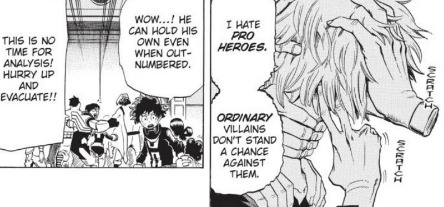
When he starts to lose in the middle of the fight, he essentially throws a tantrum, and not only does he immediately want to give up and go home, but he also lashes out at his own ally to try to vent that anger.

When All Might removes the hand from his face he has a momentary break from reality, and talks to the hand a physical object like it’s a person calling it “father” and apologizing to it.

Shigaraki also shows a clear grudge against both heroes, the failure of heroes, and the violence that heroes show (no kidding he’s a victim of violent abuse and the cycle of abuse in his family has an origin in his grandmother’s complete and total failure as a mother) that he clearly states in front of All Might once, and then Deku later the idea that heroes do not save people with their violence, and the implication that there are people that All Might have not saved and both times he is essentially brushed off by both of them.

Shigaraki’s mental distress is so obvious that even the heroes of My Hero Academia, who’s general response to villains is lock them up and throw away the key, noticed it. The heroes notice several of the symptoms I listed above about Shigaraki, but then decide to dismiss him as a man-child and then go on to say that he represents a kind of “pure evil” that villains may find attractive. The enertain the idea for like half a second that there might be more to Shigaraki that makes him different from the regular street villains heroes usually fight, and then they just dismiss the thought. Once again a common theme, the second All Might realizes he is Nana’s grandson he wants to go after Shigaraki to attempt to find him and reason with him only for once again Gran Torino to dismiss him as the kind of villain who’s beyond redemption and All Might to immediately give up on trying any other tactic than beating him down.

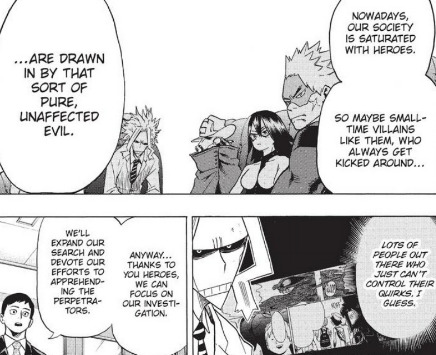
Now why do I say Batman would have immediately gone after Shigaraki and tried to reason with him and get him the help he needs? Do I have proof of him acting similarly? Batman in fact, comes across a similiar enough situation in one of the most famous episodes of Batman the Animated Series.
2. Man-Child meet Woman Child

Baby-Doll Batman the Animated Series season 3, episode 4 is one of the most popular episodes, and it shows most clearly the way Bruce’s brand of heroics is ultimately based on saving and empathy for his villains rather than just putting them down for the greater good. I could have gone with a lot of batman villains with much more clear and tragic origins, Mr. Freeze isn’t even trying to achieve anything villainous he wants to save his wife. Two-Face started out as not only Batman’s best friend, but a good guy and an ally of justice who was driven to insanity by a horrifying and sudden tragedy. Harley Quinn is a victim of grooming and abuse similiar to Shigaraki who has her entire sense of self warped and controlled by an abusive narcissist who quite literally turns her into a crude relfection of himself, to act as a pawn in his own evil schemes. I could use a lot of batman villains, but no Baby Doll, we’re going with Baby-Doll.
Mary Dahl is a washed up child actress with a physical condition that prevents her from growing up past a child, she’s sort of like Claudia from Interview with a Vampire, an adult mind inside a child’s body. Not only will she always be treated and regarded as a child for her physical appearance, due to her child as a former child star who’s show was cancelled and had no success in acting when she tried to do anything outside of playing the cutsey and innocent “baby-doll” on the sitcom “Love that Baby” she has ended up emotionally stunted and stuck in the past.
Mary Dahl’s fall to villainry is a bit less tragic than Shigaraki’s, she wasn’t like kidnapped and groomed since childhood by a villainous mastermind and turned into his own pet “make your own supervillain” project. She’s not getting work, but she’s not poor or destitute, there are former child stars who lose out on their childhoods and have no money to show for it, but she seems to have enough money to at least have an extremely competent agent and money to blow on her elaborate schemes. Her backstory is not nearly as tragic as Shigaraki’s, yet she shows several symptoms in common with Shigaraki, being a former child star like many child stars she shows severe dysfunction as an adult because it ate up her entire childhood. Child labor is bad people. Children who are not given room to grow up and develop as kids, have problems late into their adulthood.
She is also someone who feels rejected and left behind by society as a whole, it’s clear her only way of connecting to other people was the attention she received as a child star and the connections she had with cast members. She also experiences severe body dysmorphia I would say on level with Shigaraki’s, Shigaraki’s body dysmporphia is so bad he constantly picks at his own skin, his quirk soemtimes even causes physical damage to him and he feels extreme nausea at a near constant basis b/c of his emotional unrest. Baby-Doll literally experiences a same incompatability with her body, she has an adult mind, she craves to be a fully grown normal body, and a lot of her mental breaks from reality seem to come from how easily people mistake her for and treat her like a child.
Mary Dahl also shows severe dysfunction when it comes to regulating her own emotions. As tragic as Mary Dahl’s fall from fame is, and as much as it mirrors what happens to a lot of child stars in reality, Mary Dahl kind of also dug her own grave by her actions. Everyone on the cast thought she was notoriously difficult to work with, her show wasn’t cancelled on her, she left because the directors added in a new character she didn’t like and took attention away from her because of plummeting ratings. She left the show to try to take a more serious turn as an actor, once again to get attention and because she was on an ego-trip, then tried to get the show running again when it didn’t work for her but by that point it was too late. She’s also someone who just does not treat people well, she’s manipulative, she never engages people as her true self Baby-Doll is a role she is essentially playing, to both allow herself to violently lash out, but also to evade any responsibility for her own actions. It’s also ambiguous how much of the Baby-Doll persona is a genuine psychotic break (I don’t use the word psychotic lightly, I’m also not saying LOL look at her she’s so crazy, but there are genuine moments where Mary seems to mistake what happened on her TV show for reality which indicates that she’s not just trying to reclaim her former glory, that she is full on having delusions) there are also moments where “Baby-Doll” is a deliberate act she’s putting on, and Mary seems aware of what she is doing.
Mary Dahl is at the same time, delusional enough to believe she can kidnap everyone on her former show, and force them to just pretend to be the characters they were on her show, and playing dollhouse with this pretend family will somehow fix her problems. She is also, lucid enough to carefully plot and execute the kidnapping of several people, control a minion in her agent, and then evade capture from Batman several times. She is both a victim (she’s genuinely mentally unwell) and a villain (but not unwell enough she’s not aware her actions are wrong, she’s deliberately hurting people she just thinks her tragedy makes her entitled to that revenge). Mary Dahl thinks the world has wronged her and left her behind, that her show being cancelled was some great injustice done to her, and something she deserves the chance to rectify, even though as I just explained in detail that Mary was equally as responsible for the cancellation of her show. She is a person not willing to take any responsibility for her actions or see fault in herself.
You could even argue because of these quality Mary is way less sympathetic than Shigaraki, Shigaraki at least seems to have genuine critques about his society, and feels that he and the people around him have been rejected in an unjust fashion. Mary Dahl is upset her TV Show got cancelled and decided to make it everyone else’s problem. Mary Dahl’s problems are a lot more selfish, and smaller in comparison to Shigaraki’s, and yet the story itself does not downplay Mary’s distress because it is genuine to her.
In one extent, Mary is a danger to others, but she’s also a danger to heserlf. Like I said, it’s ambiguous how much but she’s clearly a mentally unwell woman. When someone is experiencing delusions on that level it’s a brain chemistry problem, and it’s also not something where it’s fair to go “Well, she has no reason to be mentally ill, it’s not like she was beaten, she’s just having an emotional breakdown because she’s not famous anymore.” I mean, what does it matter the reason whether she’s having a breakdown is a good enough reason or not, she’s clearly in extreme distress.
Number two, I think society as a whole tends to downplay the suffering of celebrities or child stars and make them seem like they are just entitled or spoiled for acting out, because they’re rich and famous and living a life most people would die for so who cares. But, HollyWood, the spotlight, and public scrutiny has a really bad psychological effect on people. Most people would not do well under such harsh public scrutiny all the time, and also when you make your entire personality around being a star and having the spotlight, also because in Baby Doll’s case there’s really no other career avaiable for her because of her condition then losing that is a pretty huge loss. Like, child stars who cannot either adapt to adulthood, cannot get work as adult actors, or just cannot even function as adults is a pretty common societal problem.
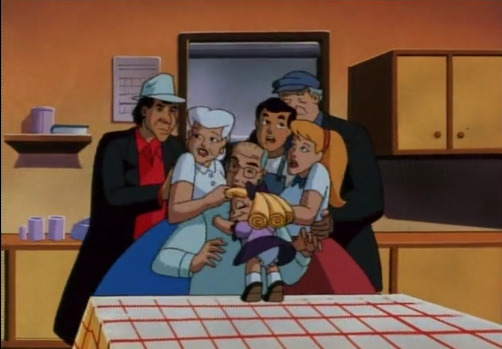
On top of kidnapping people, holding them hostage, she’s also someone who clearly needs help, like Baby-Doll is not just doing these things because she’s a selfish, entitled brat throwing a tantrum because she’s not famous anymore, she’s experiencing clear mental breaks from reality where she confuses her tv show for reality, she’s mentally sick and in need of treatment.
Baby-Doll is presented to us as a manipulative child star desperate for the spot light, endangering her cast because she herself cannot let go of the past for most of the episode, people around Bruce are pretty unsymapthetic to her, her attempts to get a more serious career is played off as a joke, the cast members do not like Baby-Doll and found her to be extremely high maintennance and difficult to work with even when she was on the show, Baby-Doll’s clearly not after the cast because of nostlagia, friendship or happy memories she has with her former cast members, but rather because she wants to pretend to be the the sitcom character who was surrounded by family who loved her. People constantly remark how crazy she is for thinking a tv show is reality. Even Robin says that he absolutely despised the “Baby-Doll” show, and it’s dismissed as kind of a cheesy sitcom with no real merit.
However, the last five minutes turn all of that on its head. Bruce Wayne, my darling, is presented to us as a man of few words. We don’t actually see Bruce’s reaction to what Baby-Doll is doing for most of the episode, we see Dick’s who clearly thinks she’s just crazy, Bruce the whole time is focused on just resolving the incident first, finding the kidnapped people, rescuing them from Baby-Doll’s grip. So Bruce’s absolute first priority is just to stop the villain from doing the bad thing, he stops the bad behavior and makes Baby-Doll unable to hurt others.
Bruce, the living embodiment of the term “Gap Moe”, because he is so closed off and not reacting to Baby Doll in any way, does not seem to be going out of his way to sympathize with her. That however, changes once the the threat Baby-Doll represents to others is neutralized. Baby-Doll then flees from Bruce with a Tommy Gun out into the middle of the night. The tables have turned and Baby-Doll has gone from a cackling villain, pretending often to be a scared little girl in order to manipulate people, to a genuinely scared and desperate person. Even the image Baby-Doll evokes fleeing from Bruce, is a sympathetic one, Baby-Doll despite being an adult woman still looks like a child, and acts several times like a woman-Child and she is fleeing from an adult man who picked his costume to terrify crimminals into submission.
Baby-Doll flees into a carnival ground filled with children, she has a Tommy-Gun on her, she’s still pretty much a direct threat to others, but the way Bruce approaches her does a complete 180. Bruce is calling out after her to stop fleeing, when she disappears into a tunnel, he’s telling her to stop not because he wants to arrest her, but because she’s going to hurt herself at this point. Baby-Doll is no longer a danger to others, she’s a danger to herself because she’s scared desperate, and fleeing, and instead of pursuing her to put her down Bruce is trying to stop her from getting hurt as she flees. This is also behavior he has shown to repeat, in Harley’s Holiday he pursues Harley the whole episode not to stop her because she’s on a crime spree, but because she’s freaking out and he doesn’t want her to be sent to Arkham and lose all the progress she made in her recovery.
Bruce pursues her into a mirror maze and this is where we get the most famous scene in the episode, Baby-Doll is still dead set on killing Bruce (this is also where Bruce shines, Baby-Doll is actively firing a gun at him and he is still calling out at her to stop because she might get hurt).
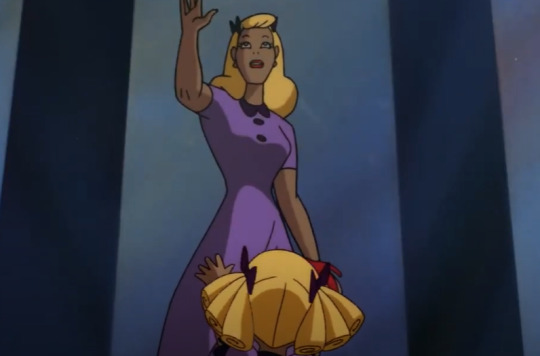
Baby Doll fires at the mirrors over and over again, until one of the funhouse mirrors shows her what she might look like as an adult, at which point not only does Baby-Doll come to a complete stop, but she talks not in her Baby Doll voice, but as Mary-Dahl.
Mary Dahl: Look. That’s me in there. The real me. Mary Dahl: There I am... BUt it’s not really real, is it? Mary Dahl: Just made up and pretend like my family, and my life and everything else. Mary Dahl: Why couldn’t you just let me Make believe?
She then grows angry at realizing that she is trapped on the other side of the mirror and will never exist in that adult body, she starts firing at every mirror around her trying to get batman who stalks her once again as an unspeaking shadow, until she gets impatient enough to destroy even the idealized image of herself represented in the funhouse mirror. At which point the gun itself runs out of ammo, and Mary breaks downc rying. At that point Batman could say that Mary is just throwing a tantrum, that being a washed up child star doesn’t entitle her to hurt others, he could say that her tears aren’t even real because Mary Dahl has pretended to be a child in order to manipulate other people and merit sympathy literally this whole episode. Bruce does not do any of that. Bruce’s only action after following her this whole time, is to remove the gun from her hands so she’s no longer capable of hurting someone, and then when she hugs him, to return her hug and comfort her.
Mary Dahl: I didn’t mean to...
Because, utlimately she’s a human being who needs help. It’s not Bruce’s job to pick and choose who deserves that help, it’s his job to help people who need it.
So yes, Bruce would have noticed right away that Shigarki wasn’t just a violent child, but a child who is clearly suffering from distress and lashing out. He wouldn’t just dismiss Shigaraki as an entitled man-child because as I’ve just demosntrated, Bruce had a situation where he frankly could have just dismissed Baby-Doll as a selfish an entitled vain womanchild and yet he didn’t do that. He saw a crying person in front of him, and he helped them, and he was even trying to help her before she started crying and asking for comfort like a more standard victim TM. Letting a child who shows clear signs of abuse like Shigaraki has go unhelped is not only out of character for Bruce, it basically is against everything he stands for as a hero.
And if you still don’t believe me on that, here’s a quote from the director of the final installment of the popular Arkham Series, “Arkham Knight”, a game that features a character Jason Todd who was similiarly groomed over a long period of time by batman’s arch enemy into an enemy for batman to fight.

#askspookies#batman#dc meta#dc comics#dc comics meta#batman meta#bruce wayne#btas#batman the animated series#shigaraki tomura#mha meta#metasks#ironically this long post is not bashing MHA for having dark heroes#as much as i love idealistic heroes my second favorite marvel hero after spiderman is daredevil#my third favorite is the punisher#though versions of the punisher that are aware#that he's not doing the right thing#the line between heroics as essentially volunteer work#and heroics as vigilanteism#is a fascinating concept to explore#jason todd is much more interesting as a violent drug lord who is still soft on victims#then he is as a much more sympathetic and palatable edgy anti hero with daddy issues#its just the extreme dissonance in mha in how the heroes are written#and how they are framed#my biggest example is hawks of course#hawks goes to extremely dark territory that makes for a fascinating character#only for hori to completely back off on that plot#and go back to framing hawks as an idealistic hero obsessed with saving people#that's just a clear example of having your cake and eating it too
300 notes
·
View notes